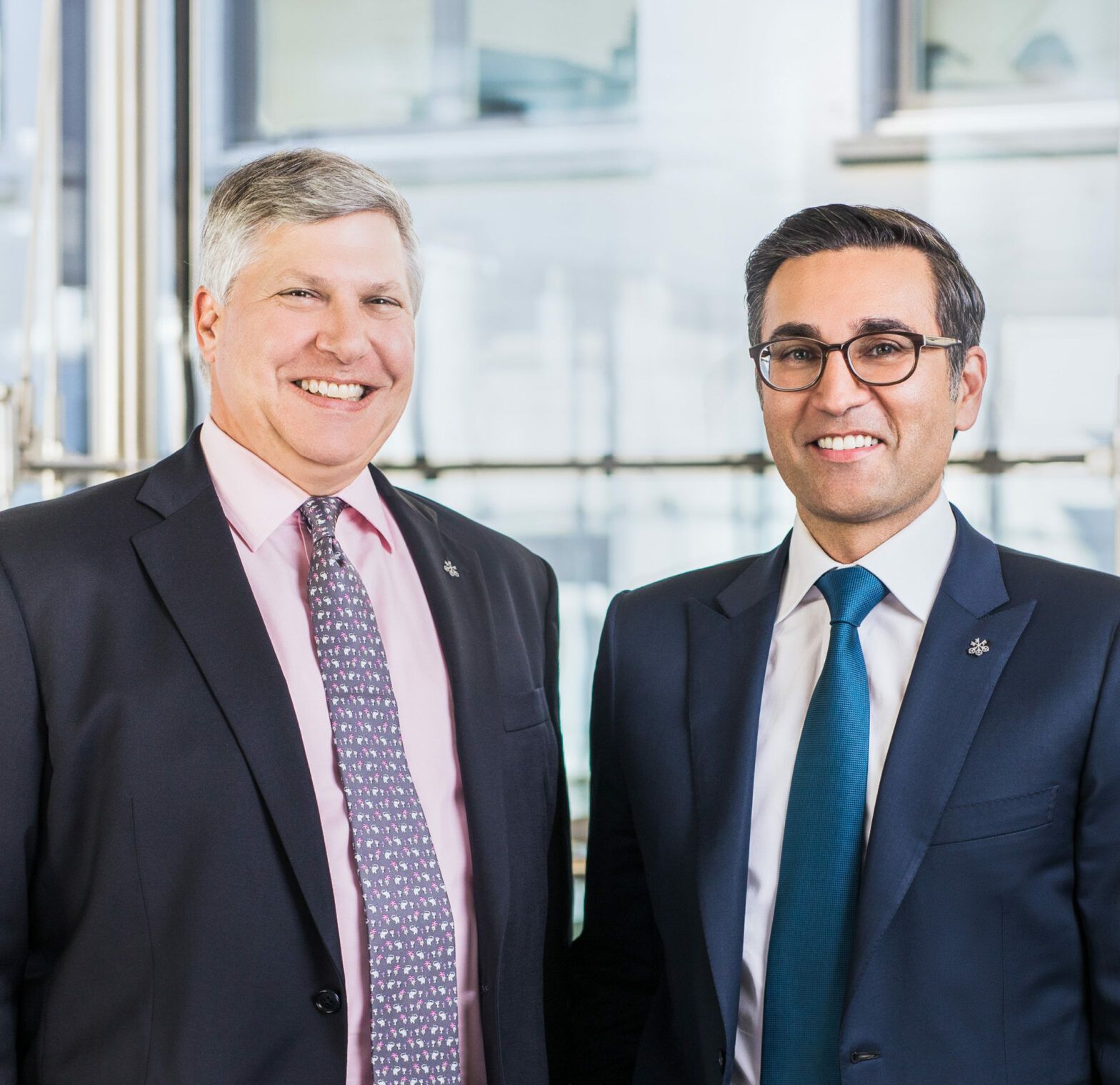Global wealth manager UBS has announced it will be recommending clients embrace 100% sustainable portfolios as they offer stronger returns than traditional investments and better diversification.
In a statement, the Zurich-headquartered firm, which has $488bn in core sustainable assets under management, said sustainable investments are now the firm’s preferred solution for private clients, with traditional investments only remaining suitable in “some circumstances”.
Iqbal Khan (pictured right), co-president of UBS Global Wealth Management, said: ““The shift in preferences toward sustainable products and services is only just beginning.
“We believe sustainable investments will prove to be one of the most exciting and durable opportunities for private clients in the years and decades ahead.”
“Covid-19 has put the exclamation point on one of the most important shifts in financial services in a generation,” added Tom Naratil (pictured left), co-president of UBS Global Wealth Management and president of UBS Americas. “The pandemic has brought the vulnerability and interconnected nature of our societies and industries to the forefront of investors’ minds and shown that sustainability considerations cannot be ignored.”
History in responsible investing
UBS has an almost 25-year track record in sustainable investment and said it was the first firm to develop fully diversified sustainable portfolios for private clients.
A report, A private investor perspective: Sustainability matters, written by UBS’ chief investment office and released to coincide with the announcement, said a significant societal mind shift is driving change in terms of sustainable investments: “First, social movements to address sustainability challenges are increasing in frequency. Efforts have most recently focused on climate change and racial inequalities, catalysing changes in corporate behaviour, government spending, and policy response.
“Second, financial market regulators have focused more and more on sustainable investing in recent years. In certain geographies, this has led to the development of new requirements intended to help investors navigate an investment landscape characterised by a lack of standardized definitions or taxonomy, by emphasizing transparency and comparability. “
It also highlighted much of the coordination of social movements takes place online and on social media, emphasising the “crucial role” that global connectivity has played in elevating sustainability in recent years.
“Based on this increased transparency and connectivity, “the report continued, “all investors – private and institutional – are, or should be, evaluating how ESG topics impact their portfolios. Investors can now more easily consider whether they want to be part of the solution, driving capital toward more diverse companies or industries developing strategies to address climate change and other sustainability challenges.”
Further echoing Khan’s sentiment the “time is now” to invest responsibly, the report pointed to governments across the globe announcing “pandemic recovery spending plans of unprecedented scale that emphasize renewables infrastructure and green spending,” which will also accelerate momentum, while natural resources constraints and climate change consequences serve as risks but also disruptive opportunities.
It also highlighted that not all investors will choose to invest in dedicated sustainable strategies, but the “expectations around sustainability considerations and transparency have increased and will only continue to do so”, and added regulatory developments led by the EU, increased industry collaboration and evolving investor demand and engagement are all also helping to “hasten progress” on these issues.
It concluded: “The decision to invest sustainably starts and ends with each of us and what we hope to achieve with our capital, beyond financial returns. Sustainable investing offers the potential for positive social impact, in addition to competitive financial performance.
“Actual positive change requires engaged investors and forward-thinking company management teams that recognize the long-term benefits of addressing societal challenges through more responsible operations and/or sustainability-focused products and services.”








